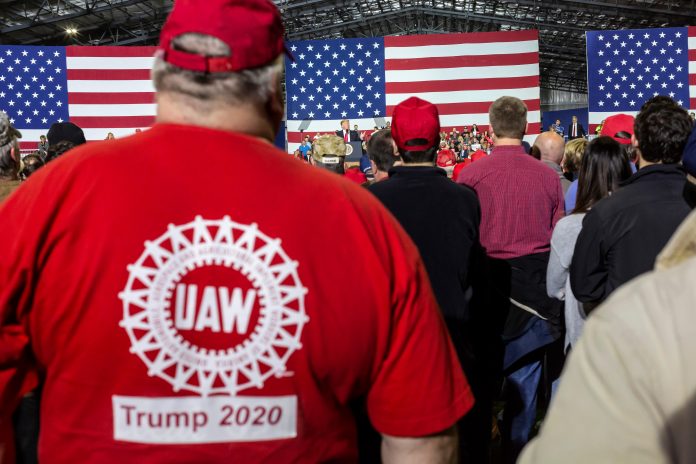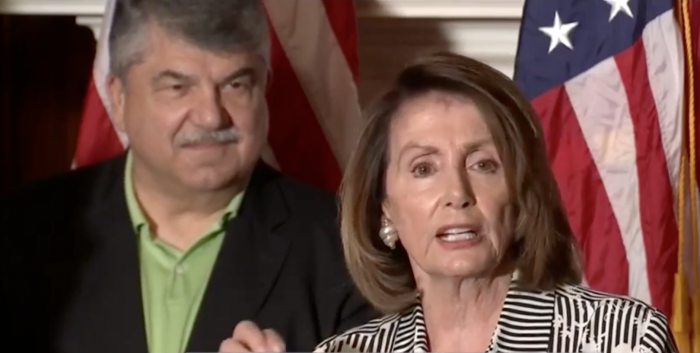
Despite an unemployment rate of 3.5%, if the UAW’s strike against General Motors lasts too long, it could hurt the U.S. economy. If necessary, President Trump could end it. Here’s how:
With 49,000 United Auto Workers members out on strike nationwide against General Motors, at present, it appears there is no end in sight.
After three weeks on the picket lines, the UAW’s lead negotiator, Terry Dittes, announced on Sunday that “negotiations have taken a turn for the worse.”
With unemployment in the U.S. currently at a mere 3.5%, although the strike is hurting UAW strikers and General Motors, it has not had a significant economic impact on the nation as a whole yet.
However, that could change if the strike continues much longer.
As the strike has affected GM facilities in 33 states, and with more and more auto suppliers laying off their workers as well, if the strike does begin to affect the larger U.S. economy, President Trump could put an end to it under the Taft-Hartley provisions of the National Labor Relations Act.
Although rarely used these days, in 1947, Congress passed the Taft-Hartley Amendments to the National Labor Relations Act over then-President Truman’s veto.
Ironically, although it was passed over his veto, Truman invoked it 10 times in the remaining six years of his presidency, noted the New York Times.
Here is the actual text of the relevant section of the Taft-Hartley provisions (Sec. 208. [§ 178. Injunctions during national emergency]):
“Whenever in the opinion of the President of the United States, a threatened or actual strike or lockout affecting an entire industry or a substantial part thereof engaged in trade, commerce, transportation, transmission, or communication among the several States or with foreign nations, or engaged in the production of goods for commerce, will, if permitted to occur or to continue, imperil the national health or safety, he may appoint a board of inquiry to inquire into the issues involved in the dispute and to make a written report to him within such time as he shall prescribe….
“Upon receiving a report from a board of inquiry the President may direct the Attorney General to petition any district court of the United States having jurisdiction of the parties to enjoin such strike or lockout or the continuing thereof, and if the court finds that such threatened or actual strike or lockout–
“(i) affects an entire industry or a substantial part thereof engaged in trade, commerce, transportation, transmission, or communication among the several States or with foreign nations, or engaged in the production of goods for commerce; and
“(ii) if permitted to occur or to continue, will imperil the national health or safety, it shall have jurisdiction to enjoin any such strike or lockout, or the continuing thereof, and to make such other orders as may be appropriate….”
Since its passage, both Democrat and Republican presidents have invoked Taft-Hartley more than 30 times.
However, if Trump does put an end to the UAW’s strike at GM to help stave off economic malaise, he is sure to draw fire from Democrats—many of whom are hoping for an economic slowdown to improve their chances in the 2020 election.




